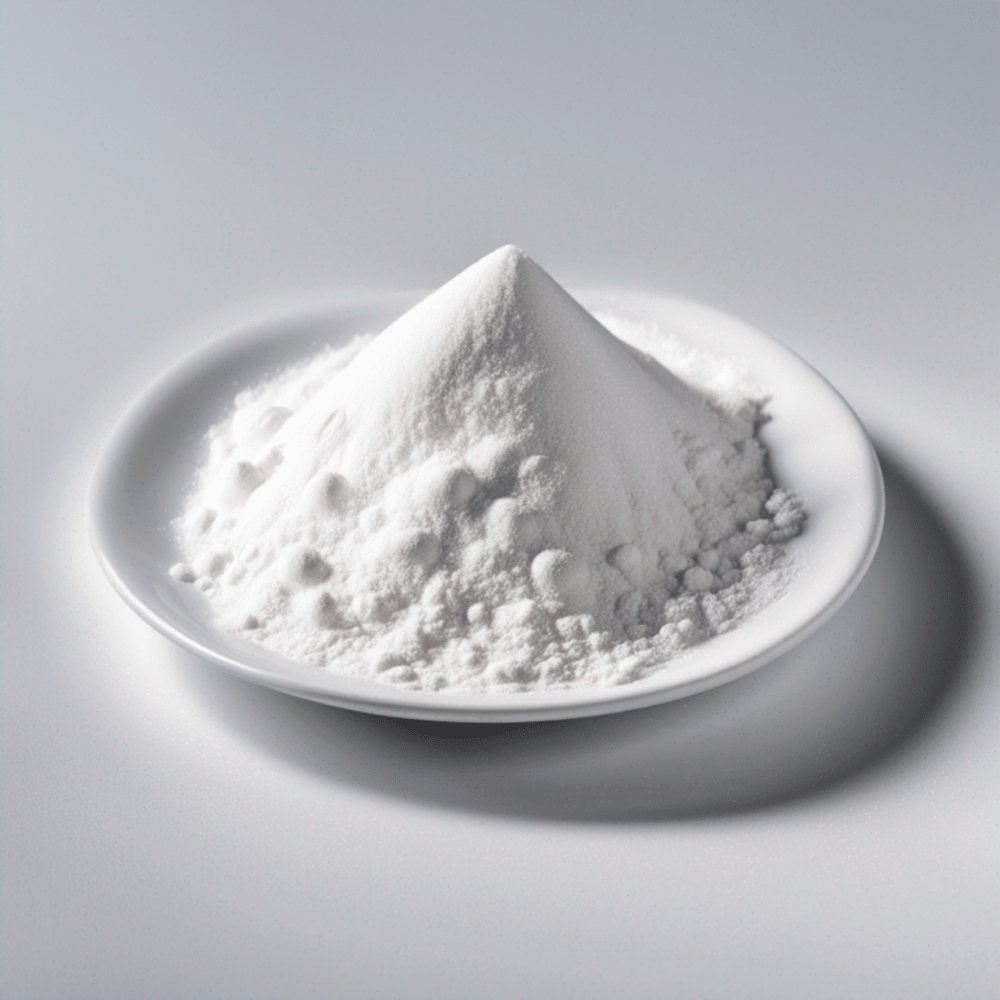Calcium Lactate Powder
Product description
Calcium lactate powder is a calcium salt of lactic acid. It is a bioavailable form of calcium that is often used as a supplement to support bone health, heart function, and overall health. The powder is made by combining calcium with lactic acid, typically produced through the fermentation of milk or plant-based sources. This form of calcium is commonly used because it is gentle on the stomach and easily absorbed by the body.
Importance of Calcium Lactate Powder:
Calcium is one of the most abundant minerals in the body, primarily stored in the bones and teeth. It plays a crucial role in maintaining bone density, muscle function, and nerve signaling. The body needs an adequate supply of calcium to support many important physiological processes, but many people do not get enough through their diet, leading to potential deficiencies. Calcium lactate powder is a convenient way to ensure adequate calcium intake, especially for individuals who have difficulty absorbing other forms of calcium or those with dietary restrictions.
Benefits of Calcium Lactate Powder as a Supplement:
Supports Bone Health: Calcium is a key component of bone structure, and adequate calcium intake is crucial for maintaining bone density and preventing osteoporosis (a condition where bones become weak and brittle). Calcium lactate is a highly bioavailable form of calcium, meaning it is easily absorbed by the body, making it an excellent choice for bone health support.
Promotes Healthy Teeth: Like bones, teeth also rely on calcium for strength and structure. Calcium lactate helps keep teeth strong and healthy by supporting enamel formation and preventing tooth decay. It may also help in preventing conditions like tooth sensitivity caused by calcium loss.
Supports Muscle Function: Calcium plays an essential role in muscle contraction. Low calcium levels can lead to muscle cramps, spasms, and weakness. Calcium lactate supplementation helps maintain proper muscle function, preventing cramping and promoting smooth muscle movements, including the heart muscle.
Heart Health: Calcium is vital for heart function. It helps regulate heart rhythm and muscle contractions, ensuring that the heart pumps effectively. A proper balance of calcium in the body can help prevent arrhythmias (irregular heartbeats) and support overall cardiovascular health. Calcium lactate, as a well-absorbed form of calcium, helps maintain this balance.
Nerve Transmission: Calcium is involved in the transmission of nerve signals, which are essential for muscle movement, reflexes, and overall nervous system function. Supplementing with calcium lactate ensures that the nervous system operates efficiently, reducing the risk of issues like numbness, tingling, or nerve dysfunction.
Bone Density in Older Adults: As people age, calcium absorption decreases, and bones become more prone to fractures. Supplementing with calcium lactate can help older adults maintain bone strength and prevent conditions like osteoporosis and fractures. It’s particularly beneficial for postmenopausal women, who are at increased risk for calcium deficiency due to changes in hormone levels.
Helps with Weight Management: Some studies suggest that calcium may play a role in fat metabolism. While not a weight-loss miracle, adequate calcium intake may support healthy weight management by influencing fat storage and fat breakdown in the body.
Supports Hormonal Balance: Calcium plays a role in regulating hormones and enzymes that are involved in various bodily functions. Ensuring you have enough calcium may help balance hormones, especially during periods of growth, pregnancy, or menopause. It can also help in regulating blood pressure, as calcium helps in maintaining vascular tone and smooth muscle function.
May Improve Sleep Quality: There is evidence that calcium helps the brain use the amino acid tryptophan to produce serotonin, which is then converted into melatonin, a hormone that regulates sleep cycles. Adequate calcium levels may help improve sleep quality and help people fall asleep more easily.
Mild on the Stomach: One of the key benefits of calcium lactate powder is that it is gentle on the stomach compared to other calcium supplements like calcium carbonate, which can sometimes cause bloating or constipation. Calcium lactate is well-tolerated and can be a better option for people with sensitive digestive systems or who experience gastrointestinal issues with other forms of calcium.
How to Take Calcium Lactate Powder:
Calcium lactate powder is usually mixed with water, juice, or other beverages. The typical recommended dosage for adults is about 500 to 1,000 mg of calcium per day, though individual needs may vary based on age, gender, and health status. It is important to follow the directions on the supplement packaging or consult a healthcare provider to determine the appropriate dosage for your specific needs.
Considerations:
Dosage: The recommended daily intake of calcium varies, but adults generally need around 1,000 mg per day, increasing to 1,200 mg for women over 50 and men over 70. Taking too much calcium can lead to negative effects, such as kidney stones, constipation, and an increased risk of heart disease. It’s important to stay within the recommended dosage range.
Calcium and Vitamin D: Vitamin D plays a crucial role in calcium absorption. Some calcium supplements combine both calcium and vitamin D to enhance absorption. If you’re taking calcium lactate powder, it might be beneficial to ensure you’re getting enough vitamin D through sunlight or supplementation.
Interactions with Other Medications: Calcium supplements, including calcium lactate, can interfere with the absorption of certain medications, such as antibiotics and blood pressure medications. It’s important to take calcium supplements at a different time from other medications, or consult a healthcare provider for specific advice.


